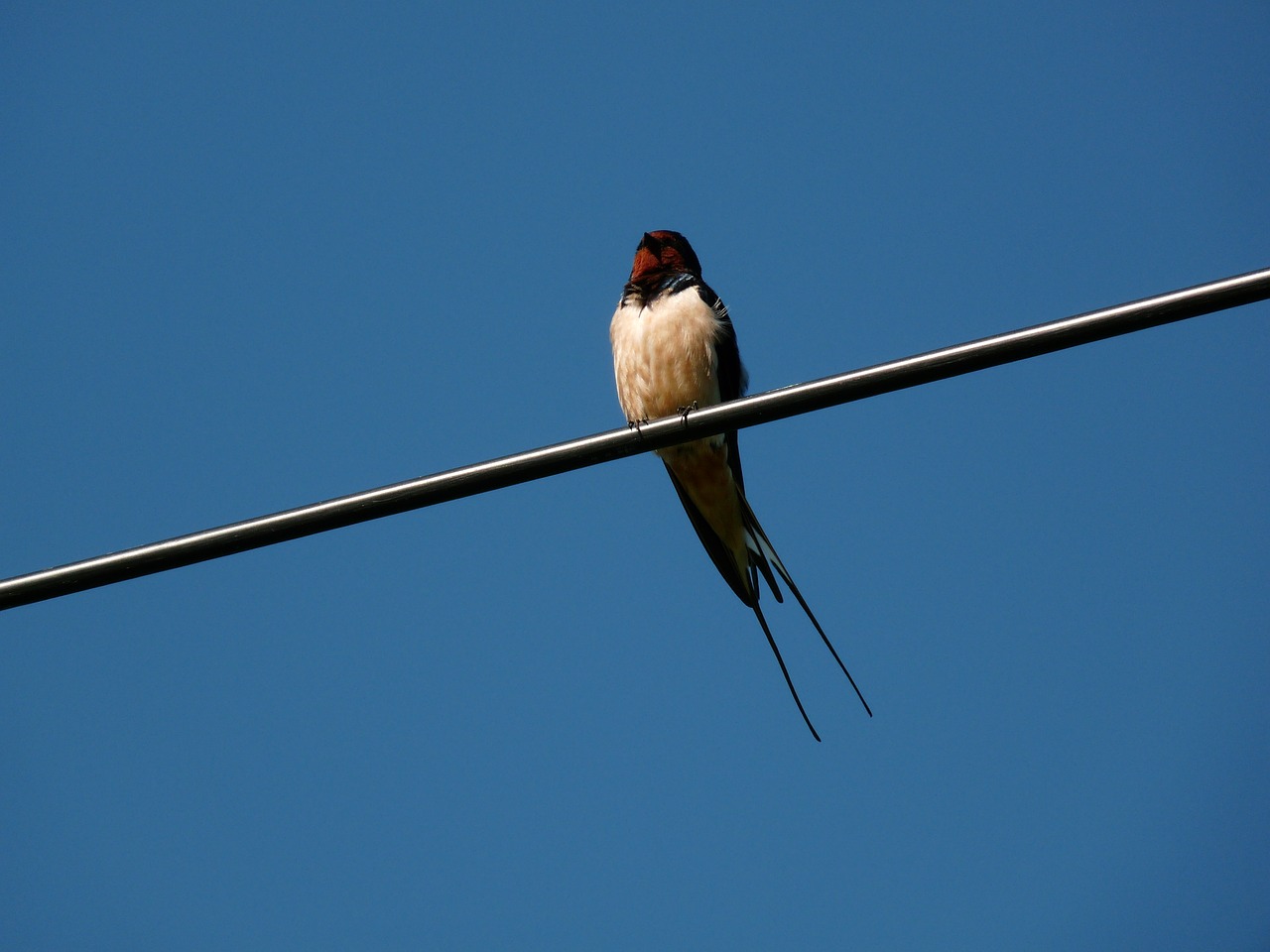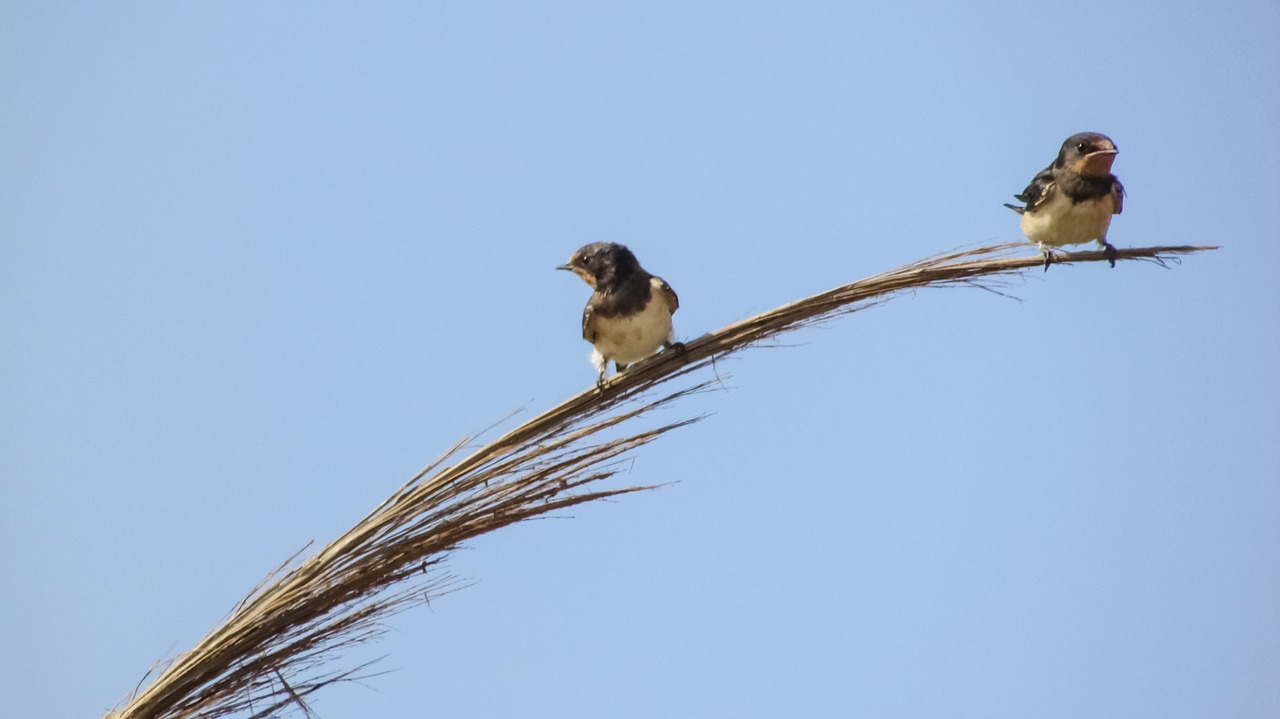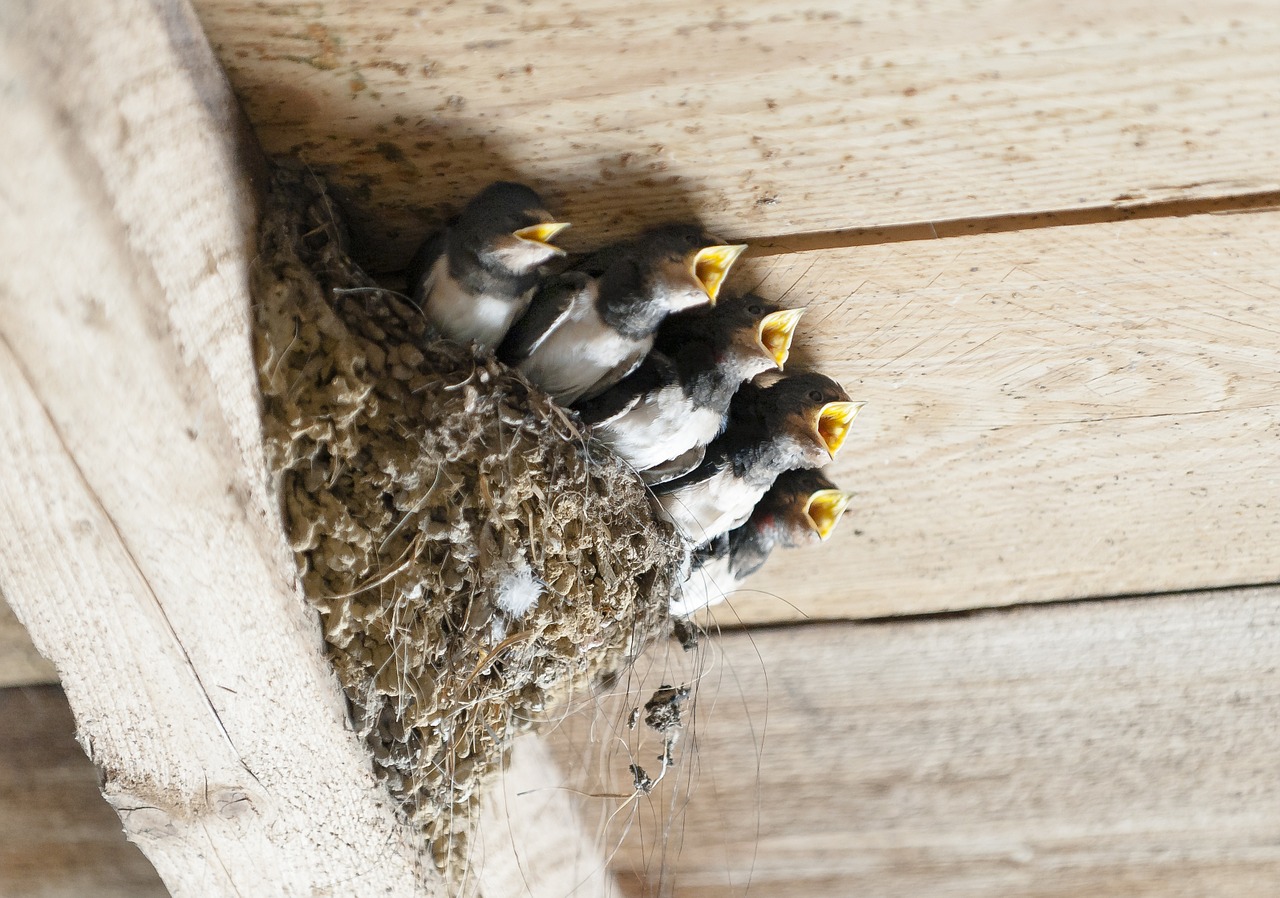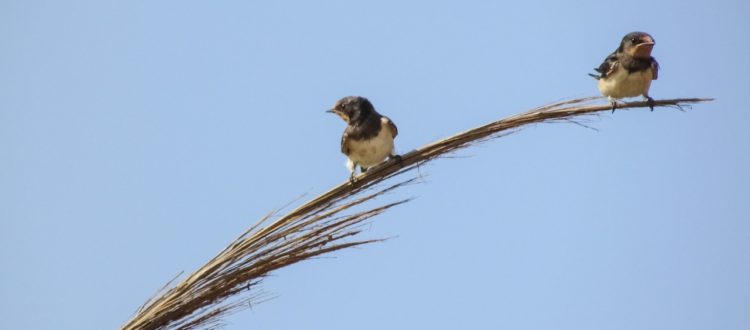What happened to swallows ?
It is customary to say that swallows make the spring… For several years, difficult to trust their arrival because their annual migration is disrupted by global warming. Chemicals, insecticides and pesticides have reduced the swallow population by 30% over the last decade. Like other birds, should we fear the disappearance of the swallow ?

A disturbed migration
We are in the spring but, in some areas, swallows are waiting… Migratory birds, they are able to travel up to 10,000 km to reach Africa in late September, where they will spend the winter. In April, swallows return to France to nest and breed. A well-honed routine that allows these birds to find abundant food and a pleasant climate whatever the time of year.
However, in recent years, swallows are less numerous on the Hexagon and their later migration. In France, it is estimated that 40% of swallows have disappeared within two decades. But this is not the only country to notice the swallow’s absence : according to the Spanish Birding Society (SEO BirdLife), Spain is losing 500,000 swallows each year. In general, the swallow population has been declining throughout Europe with a loss of between 20% and 50% since 1970 for Barn Swallows. However, swallows are protected by the Environment Code and the ministerial decree of October 29, 2009 which “forbids destroying or damaging swallows, as well as their nests or broods, under pain of prosecution, with penalties of up to € 15,000 and one year’s imprisonment “. All the same ! This protection status is however undermined by the use of chemicals and the intensification of agricultural practices.

Agricultural practices weigh on the swallow population
Birds are valuable indicators of the quality of ecosystems and our environment. They respond quickly and visibly to changes, and variations in bird populations are excellent clues. This is particularly the case for swallows…
The abundant use of pesticides and insecticides eliminates their main source of food: insects. Many swallows are also poisoned after ingestion of contaminated insects. The modernization of agricultural buildings also makes their reproduction more difficult because modern buildings are not very conducive to nest building. Intensive agriculture results in the gradual disappearance of grasslands, replaced by fields treated with pesticides. The destruction of hedgerows and wild spaces also contributes to the decline of insect populations. If human activity weighs on swallows, climate change also plays an important role…
In the event of drought, swallows are weakened and struggle from the African continent (and through the Sahara desert) to reach Europe. Conversely, the cold can decimate a part of their population and make it difficult to nest. Thus, the cold waves of 1974 had led naturalists to send back to Africa nearly 470 000 swallows who had arrived in France and which began to perish. This year, do not hesitate to welcome and help the swallows…





For the first year in 35 I have no swallows nesting here. I have noted at least 15 species of bird that have gone or are seriously depleted in this time. I am very concerned we are in the midst of extinction but no real concern is being expressed by those in a position to really make a difference.
I wonder can WE do something?
I live in Gangtok, the capital of Sikkim, a state of Indian federation. The situation is the same. I hardly see swallows these days. Perhaps the main culprit is the agricultural practices. Is there any way out of this?
It’s April 2019 in the state of Washington. For as long as I can remember, they arrive around March 19. So far, there is no sign of them.
How interesting….
Even all the way over in the Western US. Can we do nothing about it? Please see my comment below.
B.C.
I too live in Washington state and am missing the swallows. June 12…the bugs are waiting to be eaten by our swooping friends. Miss them.
We have lived here in Kidlington, Oxford, since 1971. This is the first spring we’ve had no swallows pass overhead to the north. Worse still, none have come back to nest in our out building although a pair has ALWAYS taken up residence each spring….possibly for hundreds of years as this is a very old property. For me it is doubly sad as my husband died at the end of March. We always so looked forward to the return of the swallows. No him, no swallows.
I, too, live in Washington State, on the west side, and ever since I was a child, (I’m 77 now) we’ve always had a swallow box under our eaves, and violet-green swallows nesting in them each and every spring. There are no barn swallows swooping over our fields or over the local ponds here either. The past 2 years and now this year– no swallows are raising a family in our nest box. I really, really miss them and fervently hope they are not disappearing .
I am in Carmarthen South wales and we have had no Swallows return this year.Very worrying.
I live in a town in the the West Midlands in England. For the last 30 years the swallows have returned to nest here in mid May. This year there are none. I look out for them every day but its empty skies. Where are they?
It’s now mid June 2019 and I have seen one swallow in northern France. I wonder where they are?
Hi
My name is Tracey, I am in Aberdeen . We have delighted in watching the Swallows in out garden, for the last month, alongside many other species of birds, videoing many,.
We have Magpies, thrush, blue tit, blackbird, robin and several others, who are guaranteed daily visitors, lucky us. Swallows were swooping around our gardens from May, seen every day. Friends throughout Scotland have said the same, birds are thriving, many young and easily heard, birdsong is very easy to hear 🙂 Swallows are definitely here, in Scotland, we have seen them for many years, never absent.:)
Bibury, Gloucestershire, UK…. first time in my life we have no swallows. Devastating.
I live in rural Ireland am in my 60s and for the first time ever not a single swallow has returned to my sheds
In 2023
no swallow in north america too– this is the first year they did not return– I am concerned
I’m in Maine on a sheep farm. Barn doors closed all winter, but in April the Swallows would return as a large group and swoop in the yard till I opened the barn doors for their summer nesting adventure. In ’76 through 2008 it was a beautiful chorus early AM, dwindling in numbers each year thereafter. This year there are none. The beloved Barn owl, Bobolink, Whippoorwill, Bobwhite, Wood-thrush, Wood -cock. Most sounded the sweetest bedtime lullaby and a most cheerful reveille. Even the Skunk and Raccoon were a welcome site once I learned to properly button up the hen house; they’re all gone! I’m so grateful I enjoyed them while they were here and sense it’s only appropriate my turn is nearing.
At the moment 17.30 hours on the 14th October 2020 above my house in Barry , S.Wales there are dozens of Swallows climbing and weaving over the trees and the valley , feeding for the journey south . I have hardly seen any this year .
I live in Ottawa Canada and sadly we are also seeing a very big decline in swallows. When will we take these signs seriously and start healing our planet.
We have one pair this year. Last year we had four pairs. Neither do I see any swallows anywhere in the county of Kent. I have asked locals and they think hard and then reply ‘none’.
Why aren’t we in a state of high concern. This is tragic. Also I notice far less flies and midges.
We have a second home in the Jura, north of Geneva. In years past we have had hundreds of swallows each summer, hanging from the power cable above out garden each evening. This year, 2022, the first year we have been able to get back to normal, there are none. The direct result is that we are infested with wasps, which would have been eaten by the swallows in previous years. Bad news in both respects, I’ve been stung twice this evening.